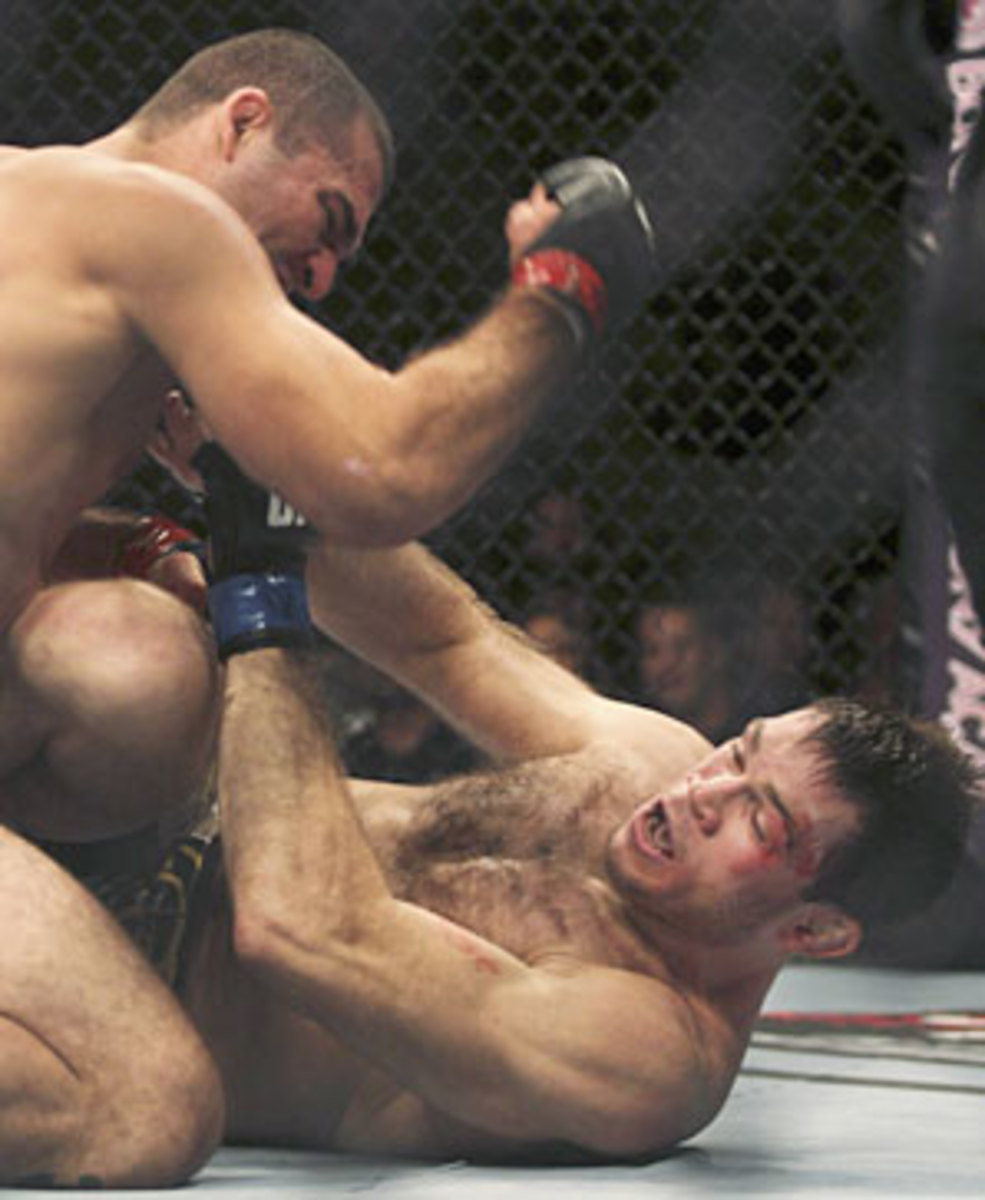Griffin's casual attitude toward defeat at UFC 134 is ominous sign
OK, so maybe that's not exactly how he put it. What he said was, these days he's fighting for "a whole new set of reasons."
When pressed on what those reasons were, that's when he listed off all the wonderful things in life that money can buy.
"Winning pays a lot more than losing," he concluded.
Then he went out on Saturday night in Rio de Janeiro and got knocked out in the first round by Rua, who made clear early on that he was fighting for much more than just a paycheck.
Seems like there's a lesson in here somewhere.
That's not to say that Griffin lost in Rio because he didn't care enough, or that he would have won if only he'd been driven by something other than financial need. This is prizefighting, after all. Just about everyone in the business is motivated by the prize, and always has been.
You think Jack Dempsey wandered into those mining towns and passed the hat around because he loved the thrill of battle so much? No, he did it because he was a better fighter than he was a miner. Neither was exactly safe, then or now, so you might as well choose the one that's over in a few minutes' time, one way or the way other.
Regardless of what we might tell ourselves, the things that drive young men to get punched in the face for a living haven't changed all that much since then.
But it's one thing for fighting to be your job, and another thing for it to be just a job. Even though he was a good enough sport to show up to the post-fight press conference after a little less than two minutes of work against Rua, as he spoke about what went wrong Griffin still sounded like a man who'd had a bad day at the office rather than a man whose dreams had just been crushed.
As Griffin put it while sitting alone on the American side of the podium, absently picking at the tablecloth in between questions: "It sucks when you do poorly at your job."
Even for a fighter with Griffin's wry sensibilities and dark sense of humor, that sounds dangerously close to the kind of flat indifference that could get a man hurt in this line of work. Maybe it would be different if he were some extraordinary talent. Then he could coast by, winning some and losing some, picking up enough paychecks to make it worth his while.
But Griffin's success was never built on being the best -- it was built on work ethic. It was built on durability, and on a willingness to do what other guys wouldn't. When you're only thinking about sundown and payday, it's probably hard to get yourself to do the extra things that once made you a champion.
Part of the reason he was still chasing down win bonuses, Griffin said in Brazil, was because his wife was on the verge of giving birth to the couple's first child -- a girl -- and "she's probably going to want to go to college, and she's probably not going to be a genius, either."
And so her father, with his sense of humor still clearly intact, keeps going out and trading blows with some of the most dangerous men in the world in order to put some money in the bank.
That's a noble motivation that's much older than the sport that pays Griffin's bills, but is it enough? Will it get him back in the gym and back in the right state of mind? Will it push him to do more and be better than the other guy, who has the hunger and the drive that Griffin used to have, back before he lost it, or else simply traded it in for a paycheck at the end of the night?
And if he has truly lost it, can he ever get it back again? If not, what happens then?





